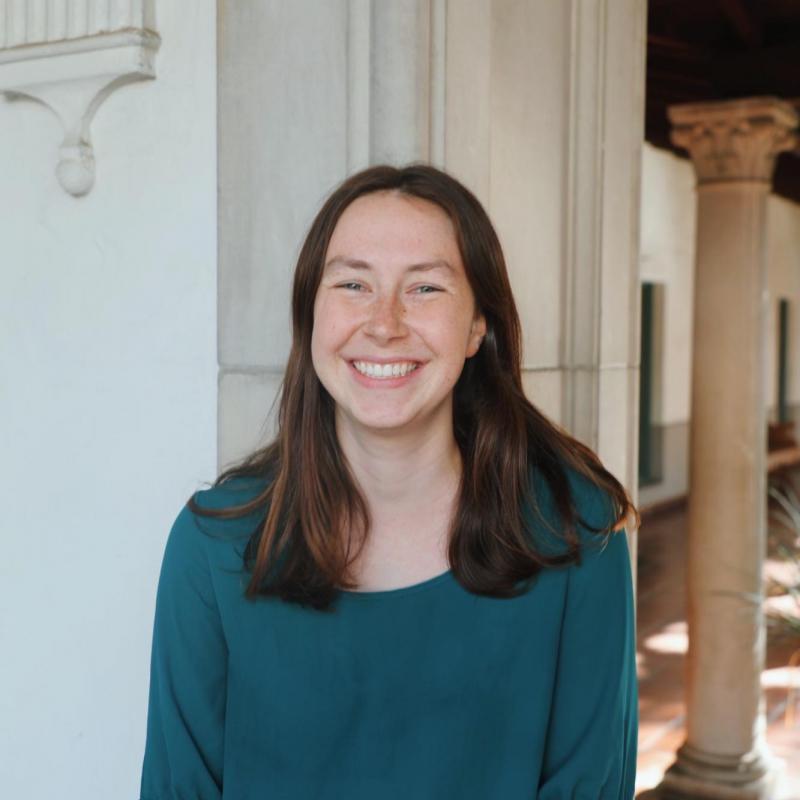Jessie Escobar (he/him) is a Health Program Coordinator with San Francisco Department of Public Health's Whole Person Integrated Care (WPIC). He works within the Operations Team for a handful of programs and currently supports five (5) AmeriCorps members. Jessie's dedication to the health of San Francisco is unmatched, and we are so grateful for Jessie's support of our AmeriCorps members. Read on for the full interview with Jessie!
Q: What is your role at Whole Person Integrated Care?
J: My role at WPIC is as a Health Program Coordinator. I work with the Operations team, supporting a handful of programs, like Shelter Health and Maria X. Martinez Health Resource Center. I am the MXM Safety Committee Lead and one-half of the Equity Lead for WPIC. I am also the point-person between WPIC and AmeriCorps.
Ultimately, my work boils down to making sure our teams have the necessary tools and processes to do their jobs well. My responsibilities range from having 1:1 check-in with staff, facilitating group meetings, managing rosters and databases, making hiring decisions, and more. It’s important for me to know about all parts of our services as a coordinator.
 Q: Do you like working here? What about it do you enjoy?
Q: Do you like working here? What about it do you enjoy?
J: Every day is different and there are always opportunities to improve our services. I enjoy problem solving and figuring out how to get the work done with the resources at hand. I enjoy making sure that patients have access to care and that the team has everything they need to make our services a success. I like to say, “Good things happen when people come through our clinic doors”.
Q: What was one of the more discouraging moments you can remember? How did you deal with this situation?
J: In general, we will always be under-resourced, because the problems we are trying to solve are huge. There may never be enough doctors, nurses, health workers, shelter beds, etc., so we are tasked to make the best with what we do have. This can be hard to hear at times, especially when resources are scarce, and the need is high. Ideally, I focus on what I can impact and look to leverage other support for anything else.
Q: What initially interested you about your career path/profession?
J: I have always felt the need to give back because so much was given to me. I received a lot of support as a kid: scholarships, tutors, mentors, summer programs. It was my experience as a Community Health Outreach Worker in a San Francisco high school Wellness Center that set the foundation for where I am now at WPIC. I received my Master of Public Administration from the University of San Francisco, which taught me how to strategize solutions and look for opportunities to create value for others. I’m a big believer that health and education can change your life and I could not imagine a better place to help others reach their potential than being right here, right now.
Q: Was there a moment or time in which you realized this profession was for you?
J: Every time I hear success stories from teams out in the field, I am reaffirmed in the belief that I am in the right place. Prior to WPIC, I did plenty of direct service, primarily in homeless encampments during the peak of the pandemic, which I loved, and now, my role helps behind the scenes to create success by design.
I had a professor who would say, “To better understand a problem, get closest to the people closest to the problem,” which highlights the importance of learning constantly from those most affected by any issue. Ultimately, no matter what badge we are wearing, we are all working towards the same cause: better health for San Francisco.
Q: What/who inspires you?
J: My teammates inspire me. Seeing folks bring their best to work is contagious. When we collaborate with one another and have fun along the way, that leads to good things happening. It’s inspiring to be around others who are mission driven and ready to roll their sleeves up. I don’t have to look too far to be reminded of why we do the work or to be inspired to continue to do it.
Q: What advice do you have for people who are just beginning their journeys toward their career?
J: My advice is to “read and run”. The problems we are trying to solve are big and complex. No one person has all the answers, so we can see what has been done before, what is currently happening elsewhere, and begin to think about what is possible through reading. When I say run, I don’t literally mean run, but in general, my advice for anyone, at any point in their career, is to find a way to be active and have fun along the way. Running, slowly and surely, is my way of taking care of myself for the future.

